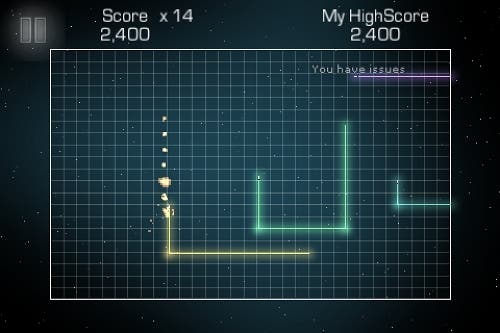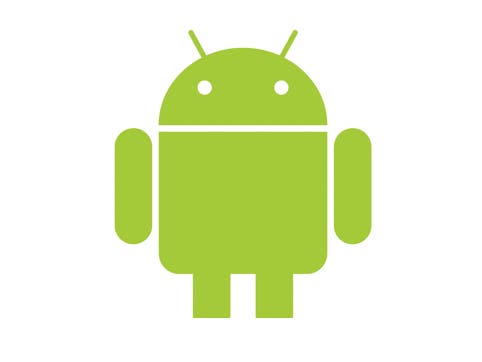The Problem with Android
Why aren't we covering more Android games? Because the devs haven't been making them. And they have their reasons...
Some of you have noticed that we don't cover Android games as often as iPhone games on this site. We've definitely noticed that you've noticed. But the lack of Android games on this site isn't for lack of will or some sort of bias - I myself own a lovely HTC Desire HD. There just aren't as many good Android exclusives. The new, promising titles I find on the Google Play store (née Android Marketplace) are very often reheated ports from iPhone games that were popular last year.
Things are getting better, and quickly - Google's marketplace refurb is a massive improvement on the atrocity that haunted us for most of last year, and the company seems to be taking a keener interest in curating its offerings too. But there still remains something of an imbalance.
There are multiple reasons for this, none of which are that Eurogamer hates Android phones and the people who use them. The first problem is that iPhone is, unfortunately, really pretty cool. At least, so it is seen among developers and the mainstream press. While Android may have gobbled up a vast share of the marketplace by allowing any number of handset manufacturers to adopt it, the very fact that it is on multiple platforms makes it harder for Google to articulate the sort of convincing brand allure that makes Apple's products synonymous with technological lust.

Personally, I find Apple products and the entire circus surrounding them somewhat irksome, and I have cultivated a maniacal, possibly irrational loathing for the company's stance as arbiters of both taste and morality (remember Jobs' "freedom from porn" gaff?). Nonetheless, it's been a pretty effective strategy: the kids love iPhones. The newspapers love iPhones. Meanwhile, by virtue of Android's ubiquity and translucency as an operating system, most people who have an Android device probably don't even know it. Ubiquity, it turns out, is just not terribly sexy.
But devs aren't simply fickle followers of fashion - there are real development challenges when it comes to Android, too. Apple may release a new device each year, the requirements may change slightly, and devs may have to reissue their software with greater resolutions if they want to take advantage of new technology. But that's nothing compared to the slew of handsets that Android developers have to deal with, says Andrew Smith of Spilt Milk Studios, co-creator, along with Nicoll Hunt, of the ace cross-platform title Hard Lines.
"I don't know how many new devices enter into the Android market every year - probably 50 or something ridiculous like that," he says. "From a development point of view, the scope of your project to cover all those screen resolutions, different processor powers and aspect ratios of the screen - it's a complete nightmare. So while it's open and free and cheaper to develop for Android, it's a lot more complicated."
By cheaper, Smith means the SDK and hardware - the cut Android and Apple take of your profits is much the same. But how you choose to deal with the plethora of screen resolutions can easily rack up the development overheads for Android.
"We employ a company called Jackal to do our ports and we do a profit-share with them," explains Smith. "I look at whatever share we make as money that's been made through a route I otherwise wouldn't have been able to pursue, simply due to having to focus with small teams."
It's a thorny issue even for large developers like Aplix, the makers of Zeemote, an analogue controller for Android that resembles the Wii nunchuk.
"We've developed a Quickstart App to deal with some of the fragmentation problems," says Paul Su, senior director of research and development. "We try a bunch of different connection methods behind the scenes so it's all automatic for the user."
That's not a great choice for a small studio: divide your profits, develop bespoke software or spend ages porting the game to a gazillion different Android handsets yourself. It's why so many games arrive late on Android or not at all. And when they do get there, how easy is it for them to turn a buck? For a long while Android's marketplace was an impenetrable bog, wont to suck great games into its bubbling slop, never to be seen again. This was, in part due to an awkward interface that made it difficult to find good games, but also some missteps in policy too.
"They had some issues originally trying to deal with piracy and their return policy," says Su. "You could get a game, play it for a while, then you return it for a full refund." Obviously this wasn't such great news for prospective Android developers.
Su points out that this has all improved a great deal - the returns policy has been amended and the marketplace is no longer a blasphemy against UX design. Android's curation is enthusiastic, too, and the content is given the best opportunity to shine with videos and user reviews and reports on the latest updates. But it will still take a while for the stigma to dissipate among developers, and then a further while for their games to appear in great numbers. Payment hiccups, of the kind reported earlier this month, don't help confidence. Also, while Android's editors and algorithms do a great job of picking out high-ranked apps, there's still no obvious avenue for devs with zero cache to make their game visible on the marketplace.
And then there's the issue of which marketplace you're talking about: "With iOS you have just Apple to go to - one conduit to push your game," says Smith. "That's the best way of getting your game noticed and interest built. With Android, who do you go to? There's Google's marketplace, and Sony has one for the Xperia Play and Nokia has Ovi. You try to hit them all, but that's obviously going to take more time."
It's not an easy nut to crack either. As Smith points out, one of the strengths of Android is that multiple platform holders can use it, so a degree of fragmentation is unavoidable. The best thing Google can do is address the developer's concerns - and most of the time that means simple tools and more support.

There are advantages to Android development though. Aside from the relatively cheap hardware, the fact that Android is such an open platform allows for much quicker iteration. "I can release an update and it'll be out in an hour rather than days - that's fantastic," says Smith.
Android's relative openness is the reason that Zeemote is able to exist at all: "[We target Android] mainly because of Apple's policy about Bluetooth and what controllers they allow on iOS," says Su. "We are working on that and we hope to be on iOS soon. But right now Android has a very open marketplace and large installed base."
"And there's probably more space on Android for the kind of community building that you see in PC indie games, compared to iOS," says Smith. "I've found it quite difficult, despite being fairly media friendly, to engage with fans in any meaningful way, but I'm pretty sure Android's open enough that you can find solutions."
So, it's not all bleak. The Google Play store will no doubt improve further, tools may be released that ease the burden of porting, and devs may be lured in by Android's low hardware costs as the lustre of Apple's technology fades. But until that time, we'll do our best to cover what's new and interesting on the platform - and you can always let us know what great Android games we should be talking about. If that doesn't satiate your appetites, perhaps try to think of each iPhone App of the Day as a preview of the great Android games you'll be playing in six months time. Small consolation, I know - I own one, too.









